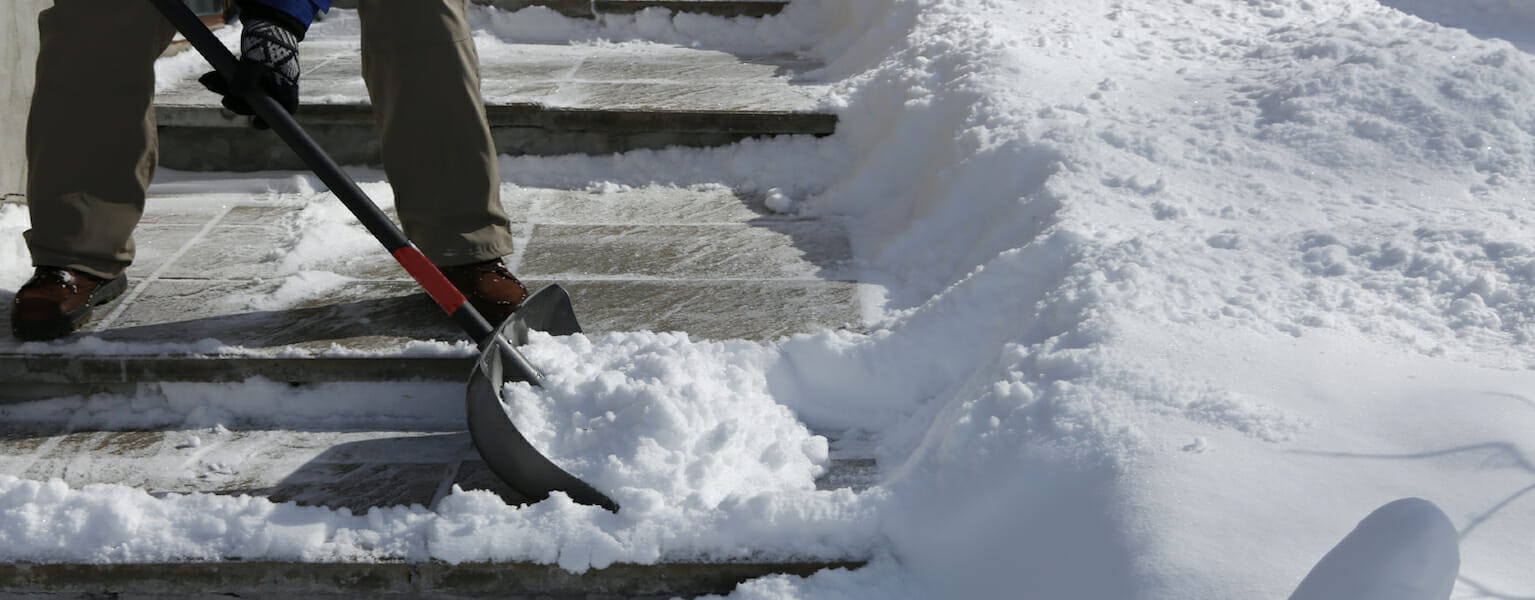It started as a normal day for home health care provider Lynn Brome: she was performing her general housekeeping and cooking duties for a resident at the Blackhawk Apartments in Elgin, Illinois. She went to take the trash out through the back door but realized the staircase was still covered in ice and snow from a blizzard the night before. She tossed the trash bag down to the ground and used the handrail to guide her descent. Unfortunately, Brome only made it down two steps before she slipped and fell, wrenching her right arm in the process.
She made it home on her own that day, but subsequently sought medical treatment for her injuries. Shortly thereafter, she filed a worker’s compensation claim with her employer, Tri-County Opportunities.
Almost exactly two years later, Tri-County filed a lawsuit against Professional Property Management, the company hired to manage the Blackhawk Apartments. Tri-County alleged that it provided workers’ compensation to Brome but should be reimbursed by the property management company because it was their fault she fell in the first place. Had they removed snow and ice from the premises, Brome would not have gotten hurt.
Indeed, the contract Professional Property Management had with the building owner required them to provide snow removal, a fact to which Michael Gilroy, the site manager, acknowledged during his deposition. The maintenance/caretaker agreement between Professional Property Management and Gilroy specifically states that he was required to:
Keep sidewalks free of ice and/or snow and take bids on snow removal of driveways/parking areas as instructed by PPM. Overnight snowfall on all walks must be cleaned by 7:15 a.m. weekdays and/or weekend/holidays.
But ultimately, the Illinois Appellate Court ruled in favor of the property management company. How could that be?
As it turns out, Illinois law specifically states that occupants of a rental property are responsible for snow removal—not the landlord (or property management company if hired by the landlord). In this case, even though Professional Property Management was required to remove ice and snow according to its contract with the building owner, there was no legal obligation to do so under Illinois state law.
Now, if Blackhawk Apartments were located in Chicago it would be a different story. Elgin and Chicago: two Illinois municipalities, two different sets of laws. See, the City of Chicago actually has its own ordinance that requires property owners/landlords to remove snow and ice, not just on their own properties but on the sidewalks fronting the properties too. This means that a Chicago landlord looking at the state law (occupant responsibility) can still face penalties under local law (owner/landlord responsibility) for lack of compliance.
In fact, responsibility varies greatly from state to state. Ohio, like Illinois, requires the renter to remove ice and snow. The duty falls to the owner/landlord in Massachusetts and Pennsylvania. Many state and local laws not only dictate who is responsible, but also the time frame in which the snow removal must occur (usually 24-48 hours).
Making matters more complicated, various laws specify who is responsible for snow removal depending on the type of property. For instance, an ordinance may require the landlord to do so in rental apartments with 3+ units, but it may be a renter’s obligation if they live in a single-family house or a duplex.
Understanding city and state laws around ice and snow removal is particularly important to think about as we head into the winter season—and this is where property management companies are worth their weight in gold.
Property managers are especially adept at handling these issues: from crafting crystal-clear lease agreements that cover everything from who’s in charge of snow removal, to where snow can be removed to and in what time frame it must happen. And when it’s the responsibility of the owner/landlord to provide such snow removal, property managers will have a grip on the nuances of local ordinances, like how wide paths need to be and whether they need to be sanded or salted.
If this winter shapes up to be anything like the last, it’s worth contracting the duties of snow and ice removal to a property management company if you haven’t done so already. The last thing a landlord wants to worry about on a cold winter day is trekking from property to property to ensure snow and ice has been cleared. Fines aren’t the only thing on the line. Costly slip-and-fall lawsuits could be waiting in the wings for those who are unprepared, as well.
Read more on Maintenance

